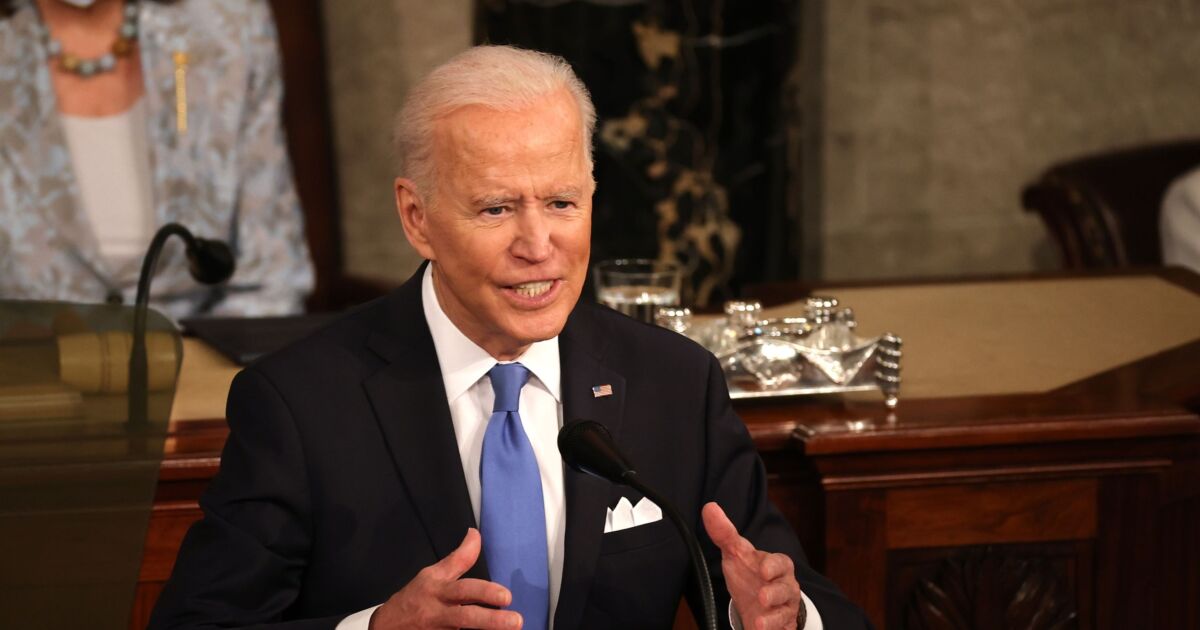The Senate Finance Committee held a hearing Thursday to discuss the Biden administration’s recently unveiled budget and tax proposals, as tax experts try to predict what will happen after the election.
Earlier this month, the Biden administration released its budget with plans for
“The President’s budget proposes additional investments to lower costs for workers and families and strengthen our economy while reducing the deficit,” Yellen said in her opening statement. “It proposes making health care more affordable for millions of Americans by making permanent the expansion of tax credits for health insurance premiums enacted in the American Rescue Plan and extended in the Inflation Reduction Act. And the budget includes expanding the Earned Income Tax Credit, Child Tax Credit and Low-Income Housing Tax Credit — proposals which would contribute to lowering child poverty and giving working families more breathing room in their household budgets. We can make these investments while reducing the deficit by $3 trillion over a decade through a combination of smart savings and tax proposals.”
Sen. Mike Crapo, R-Idaho, the top Republican on the committee, challenged the Biden tax proposals and pointed to the expiring tax cuts from the Tax Cuts and Jobs Act. “Last week, President Biden released his staggering $7.3 trillion budget proposal,” he said in his opening statement. “As expected, it was filled with familiar partisan tax-and-spend proposals, doubling down on an agenda that was rejected even when Democrats had majorities in the Senate and House. The President proposes nearly $5 trillion in new and increased taxes. Tax increases of that magnitude will affect all Americans through lower paychecks and higher household expenses. However, the most notable tax increase Americans would face under the Biden budget is one that went conspicuously unmentioned: the tax increase that would result for households earning less than $400,000 if the tax cuts from Republicans’ Tax Cuts and Jobs Act are not extended. While the administration continues to spread misleading information about the TCJA, they cannot deny that if the TCJA individual tax cuts are not extended, individuals making less than $400,000 would face a more than $2 trillion tax increase, breaking President Biden’s pledge. As many TCJA provisions are set to expire after next year, the differences between Biden’s plans and Republicans’ actions have never been starker.”
Senate Finance Committee chairman Ron Wyden, D-Oregon, urged Republicans on the committee to pass the
“It has now been seven weeks since 357 members of the House voted to pass my bill with Chairman Smith that expands the child tax credit and restores R&D incentives,” he said. “I’ve listened to my Senate colleagues and spoken with many of them personally. All along I’ve said I’ll work with anybody who wants to find a way to get this done quickly, and my door is open. The number-one concern I’ve heard from Republicans is the child tax credit lookback policy. While I think the policy is important, I’ve offered to take it out of the bill if it gets this over the finish line. Working with groups, we have found a way to do this and still lift the same number of kids out of poverty. As of this morning, my offer on the lookback is still on the table. I understand that some members prefer to wait and try to pass a bill next year. The reality is, delay will have serious consequences. A lot of innovative small businesses — for whom the R&D provision in the bill is a lifeline — are telling me they aren’t going to be around in 2025 if the Senate decides to wait. I also believe there are a lot more than 60 members who want us to act. So I’m going to keep at it. Members are probably going to get tired of hearing from me over the next few days, but I’m hopeful that the Senate is going to get this done soon.”
Yellen urged Congress to enable the U.S. to join the Organization for Economic Cooperation and Development’s global minimum tax agreement, noting that it’s currently being implemented in jurisdictions around the world. The budget proposes to raise the minimum tax for corporations from 15% to 21% and to levy a minimum tax on billionaires of 25%.

Chip Somodevilla/Bloomberg
“The corporate tax increase would be significant because the average global corporate rate is within a percentage or so of where we are right now,” said Edward Renn, a partner in the private client and tax team at the international law firm Withers in New Haven, Connecticut. “That would impact businesses in a big way on profitability.”
However, tax experts disagree on whether the U.S. should allow the OECD to set tax policy. “They’re looking at what’s going on with the OECD and its tax regime for global tax, and I think they’re trying to come up with something that’s really approximate to what the OECD is trying to accomplish,” said Christopher McLoon, a member of the law firm Cozen O’Connor in Philadelphia. “There’s definitely a legitimate policy goal. I think the contra argument to that is that we don’t share their goal. We’re the United States. We want our own thing. We don’t want to be guided by what the OECD does.”
The Biden budget also proposes to raise the tax on corporate stock buybacks from 1% to 4% to encourage businesses to reinvest profits in their workers and companies; and deny corporate tax deductions for employee compensation in excess of $1 million paid to any employee by both publicly and privately owned C corporations.
“The corporations wouldn’t be able to deduct any compensation amounts in excess of a million dollars,” said Renn. “They have some limited restrictions on that now for CEOs and a handful of top earners. But this is an across-the-board requirement and it appears from the Green Book that they want to include things right now that you’re not even taxed on, like your health insurance benefits.”
One of the business tax proposals might be welcomed by some companies. “One nice thing that I noticed was that they’re going to allow people to make QEF [Qualified Electing Fund] elections on PFICs [passive foreign investment companies] retroactively much more easily than they do now,” said McLoon. “That’s mostly an administrative convenience because Internal Revenue gets oodles of requests for making a retroactive election. Now what they’re going to do now, in this budget proposal, is let the Treasury write some rules on how to make retroactive elections without getting a consent. I think that’s good for everybody.”
“Sometimes you forget to make the QEF election on time or you realize that you have a PFIC and you need to do something about that, but you realize that after the fact, and you ask the Treasury or the IRS if you can make this election late,” he added. “The IRS currently gets a bunch of those requests. What they want to do is streamline the process so that people can make a late QEF election under some sort of procedure that the Treasury sets out, and they don’t have to ask for consent. They can just do it.”
The Biden administration plans to keep in place the TCJA’s tax cuts for taxpayers earning less than $400,000 per year, but higher earners could see the tax cuts lapse even sooner. “That return to 39.6% is in the cards already,” said Renn. “That will happen automatically on Jan. 1, 2026. He wants to actually speed it up by a couple of years.”
The Biden budget proposes to extending the solvency of the Medicare Trust Fund by expanding the Net Investment Income Tax on income over $400,000 to cover all pass-through business income not otherwise covered by the NIIT or self-employment taxes, and by increasing the additional Medicare tax rate and the NIIT rate by 1.2 percentage points above $400,000 for a total Medicare tax rate of 5% on high-income taxpayers.
“He wants to take some of the preferential dividends and capital gains rates for high income earners, and subject them to NIIT and also subject them to the 39.6% income tax rate,” said Renn. “For some folks, that would be an income tax rate in the low 40s for passive income.”
The proposal would expand the reach of the NIIT. “They’re really broadening the base on the Net Investment Income Tax,” said McLoon. “This is a revenue raiser, and it’s directed to raising money for the hospital insurance fund, which apparently is going broke in 2031. They need to get money from some place. They looked at how people use particular S corporations as a way of avoiding the tax that would otherwise be imposed under the Net Investment Income Tax and self-employment tax. A common scheme that’s promoted is to use an S corp to reduce your employment tax liability. The Treasury obviously knows about this and is now saying we need some money here and here’s a source. We can justify this, because you take two people in identical positions. One is using an S corp and one is not using an S corp, and one is paying more to the hospital insurance fund than the other. There’s really no justification for it. They get the same income. They’re getting the same revenue.”
Other provisions would close estate and gift tax strategies that enable high earners to reduce their tax by using complicated trust arrangements to transfer their assets to their heirs, as well as close off life insurance strategies that allow the wealthy to avoid taxes on customized investment products.
“There’s a provision in here that they floated in 2021 on excess holdings in retirement plans that would impact life insurance for wealthier people,” said Renn. “If you’re worth more than $100 million, they want 25% of your net worth, which includes unrealized appreciation. There’s only been a couple of countries in the world where you’ve had that, and it’s never worked. There’s also this idea of a loss of step up in basis for very wealthy people in their estates, but they’d still pay an estate tax. There’s no place in the world where you get taxed on the built-in appreciation and the death tax. It’s one or the other.”
Canada has a similar approach. “The idea is that if you give property or bequest property, and if it’s appreciated property, you pay the tax when you gift or bequest it,” said McLoon. “Canada has that approach and it seems to work pretty well. It is also causing a lot more gain to be recognized.” Some tax experts have estimated that about half of all capital gains on appreciated property in the United States goes untaxed because of the basis adjustment on death. “This is a way of saying well, no, actually you’re going to have to pay for the basis adjustment,” said McLoon.
Tax professionals are already helping clients plan for the expiration of the TCJA’s estate tax reductions in 2025. “We knew that the sunset was coming in 2025, so it’s been in the back of everybody’s mind,” said Cheryl Prout, a partner at the Bonadio Group in Buffalo, New York, who co-leads the Top 50 Firm’s estate, gift and trust team. “In the past year or so, there’s been a lot about this in the press if you’re really paying attention. Clients have been asking about it. We’ve been going to clients that we know are in this level for their estate, and then we’re expecting it to pretty much ramp up post tax season in April, where people are going to start gifting and doing a lot of things to try to take advantage of what’s out there before the potential sunset. We still don’t know if that sunset is going to be extended or if the laws are going to change. There’s speculation out there and there is some discussion at the legislative level, but we still don’t know where things will ultimately land.”
If the TCJA sunsets as planned, the estate and gift tax exemption could decline to approximately $7.5 million per individual and $14.5 million for a married couple, depending on inflation, according to
The Biden budget proposal would expand and enhance the Low-Income Housing Tax Credit to boost the supply of housing that’s affordable for low-income renters. Some of this could be funded by raising corporate tax rates.
“There is an indirect benefit to raising rates, especially on the corporations,” said McLoon. “When the rates were cut under the TCJA, there was a lot less appetite for tax credits, and programs like the LIHTC took a hit, because there just wasn’t as much appetite for the credits. This proposal will have an indirect benefit in expanding the pool of capital that will go into energy projects or or Low-Income Housing Tax Credit projects, and increasing the price and the amount of money that the investors will pay for credits.”
The November election will determine what happens with tax policy, and whether all the Trump tax cuts are extended, or if Biden’s proposals will pass in a Congress that could be controlled by either party, or closely divided as it is now.
“The budget is a wish list,” said McLoon. “There’s so much of this that, at least under present conditions, absolutely will not be law.”
“I really think this is largely a political statement on Biden’s part,” said Renn. “I don’t know how considered it is. They’ve taken a look at the polls, and people don’t like corporations, so they’re perfectly willing to take a political stance. I don’t think there’s necessarily tax rationality or economic justification for some of these proposals. They’re what he thinks will play well, at least, with his power base. I think a lot of this is going to go by the boards and we really won’t know until you get legislative action. You’re not going to get legislative action in a hurry. The House and the Senate are living proof that there’s a little bit of dysfunction there. It’s easy to say something, but it’s another to actually get them to do anything. They all agree, but can’t get anything done.”




